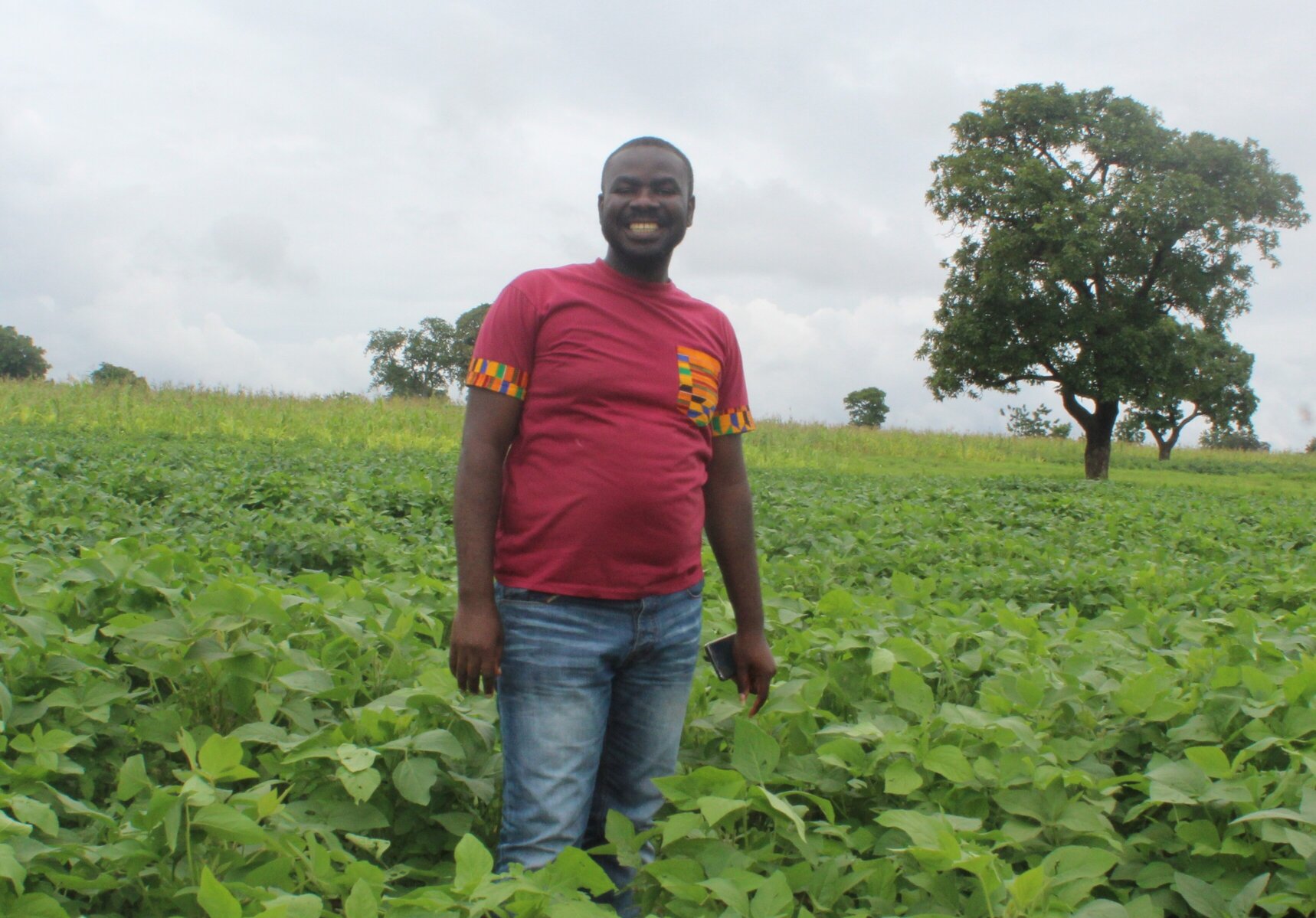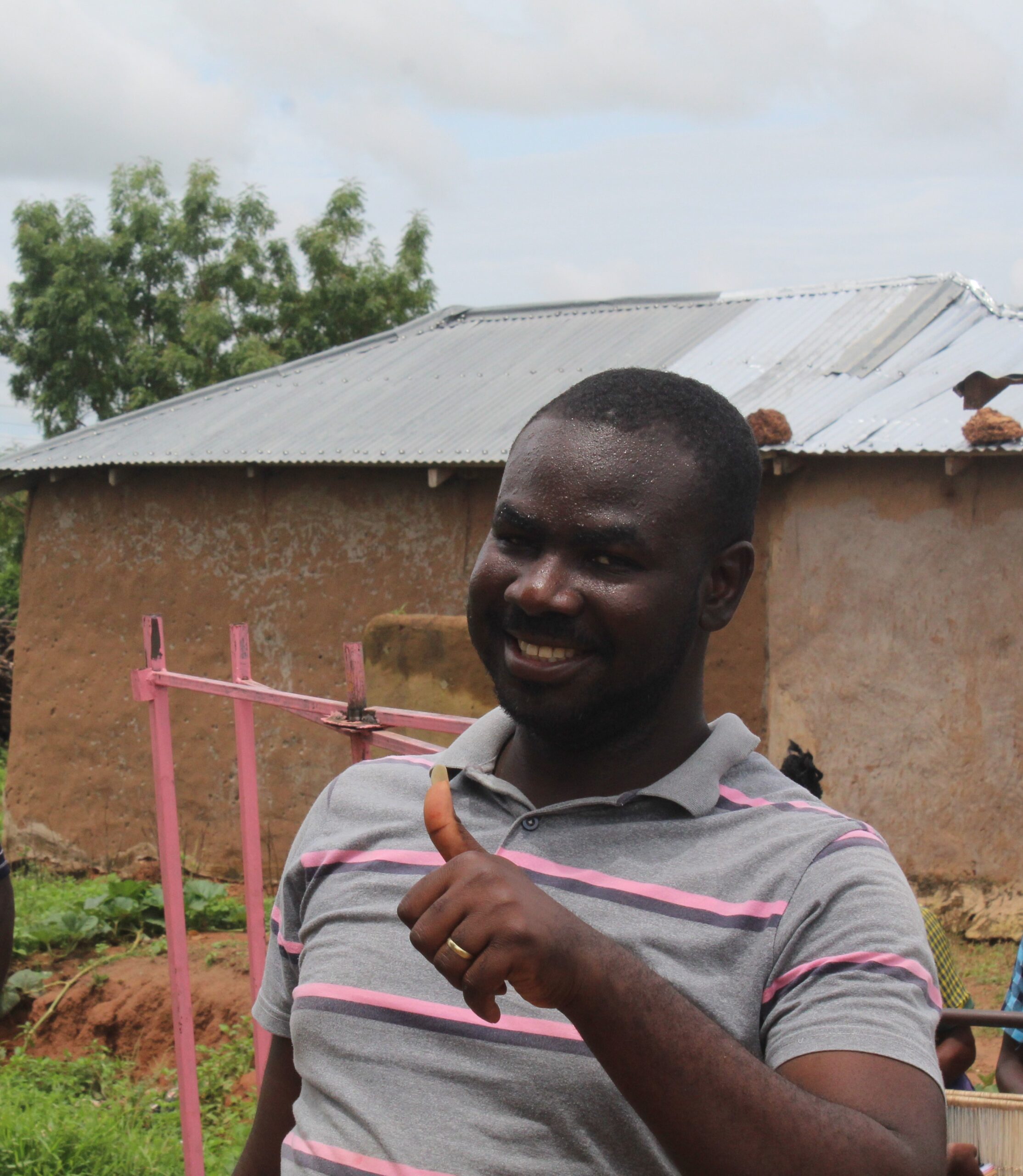
Albert Arhin talks about his work in Ghana which focuses on ensuring the effectiveness on the ground of climate change policies
There is often a level of power dynamics going on when it comes to the distribution of benefits [of climate change policies in rural areas]. We need to raise more awareness about how some people are getting left out.
Albert Arhin
Albert Arhin is a climate change and sustainability research fellow in Ghana where he also leads on a major climate adaptation project. His work as a researcher, lecturer and consultant aims to improve the lives of rural communities by increasing the effectiveness of conservation and sustainability policies and projects, ensuring that everyone is on board and everyone benefits.
It acknowledges the complexities of changing attitudes and approaches and builds on his PhD at Cambridge which looked at how climate change policies are translated in forest management and how they often don’t work out as expected. He focused in particular on REDD Plus, an international climate change framework aimed at rewarding actions that Reduce Emissions from Deforestation and Forest Degradation in Developing Countries and promoting the role of conservation, sustainable management of forests and enhancement of forest carbon stocks.
Albert says his time at Cambridge helped him in many ways. Four things stand out from his time: the access he had to researchers on a wide range of topics and to a mindset that encourages critical thinking; access to facilities, including the latest IT; access to support networks from Gates Cambridge and his department to the African Society; and the building of friendships and networks spanning different cultures, disciplines and countries. Gates Cambridge was one of these networks which offered Albert access to different fields of knowledge and different international perspectives. “All of that shaped me,” he says, adding: “Everyone wanted me to succeed.”
In addition to the focus on his research, which has resulted in several papers and contributions to books, Albert says he learned important communication skills, learned in part through the Gates Cambridge internal symposia. “I now assume everyone is a lay man and I don’t take anyone for granted,” he says. “I make sure to break things down so that everyone understands what I am talking about and I can bring them with me.”
After Cambridge
 Albert [pictured left] completed his PhD in 2017 and stayed on in Cambridge for a year to explore different possible opportunities and to refine his writing skills. He was offered a position at another UK university as a research associate on a health and development project covering 16 African countries, but decided to return to Ghana in 2018, in part for family reasons. Albert had two children at the time he was a scholar [he now has four] and the increased cost of living and visa costs made working in the UK less attractive. He was also keen to work with underserved communities and had received an offer to work as a research fellow with the Bureau of Integrated Rural Development at the Kwame Nkrumah University of Science and Technology where he is now based.
Albert [pictured left] completed his PhD in 2017 and stayed on in Cambridge for a year to explore different possible opportunities and to refine his writing skills. He was offered a position at another UK university as a research associate on a health and development project covering 16 African countries, but decided to return to Ghana in 2018, in part for family reasons. Albert had two children at the time he was a scholar [he now has four] and the increased cost of living and visa costs made working in the UK less attractive. He was also keen to work with underserved communities and had received an offer to work as a research fellow with the Bureau of Integrated Rural Development at the Kwame Nkrumah University of Science and Technology where he is now based.
Since returning he has also been involved with consultancy work with NGOs such as Oxfam, the Rainforest Alliance and the Food and Agriculture Organisation of the UN as well as local organisations and private firms covering general development issues. And he leads the the Africa Policy Research Institute’s “Climate Adaptation Strategies and Initiatives: Issues and Pathways in Ghana” project.
While Albert’s research work initially focused on sustainable development, environmental planning and project management in relation to natural resources, it has evolved over time into three broad areas or LID: livelihoods – understanding how people live in rural areas and what they rely on when it comes to income, and jobs; institutions, including the agencies, laws and so on that contribute to shaping those livelihoods – evaluating development
programmes and other interventions; and distribution – looking at how the benefits of interventions are distributed, which Albert says responds to some of the questions raised in his PhD.
“There is often a level of power dynamics going on when it comes to the distribution of benefits. We need to raise more awareness about how some people are getting left out,” he says, adding that the challenge is traditional hierarchies in the local community leadership. He gives the example of cocoa farming, much of which is done by migrants who often don’t see any cash or in kind benefits of conservation incentives.
Albert, who is also involved in regional African development networks, adds that his PhD identified that just focusing on natural resource management in isolation does not address the complexity of rural development. Hence the need for the LID approach. “We need to think more critically about how things connect if we want to shape different outcomes,” he says. He adds that there are good initiatives around, but the challenge is to sustain and upscale them. His work takes both a national and local level approach.
Albert says that his academic research is focused on evaluating the evidence about the effectiveness of the LID approach and feeding that into policy development both when it comes to government and to organisations. Four months ago, he met with the minister for rural development to talk about how the ministry can support the work better and generate better data to inform its policies. Another focus is on changing people’s mindsets in rural communities by talking about ways they can diversify their incomes and become more independent so that they can better withstand the effects of climate change on different crops. Albert says that his teaching work also allows him to pass on his knowledge and help to change attitudes on a larger scale.
He adds that he carries the Gates Cambridge principles with him in his work: the emphasis on academic excellence, on building future leaders and on a commitment to improving the lives of others through his work on rural development.
*Top picture credit: Cocoa farming in Ghana, courtesy of ICCFO and Wikimedia Commons.












